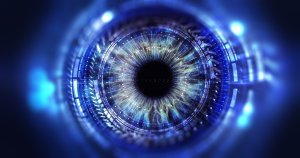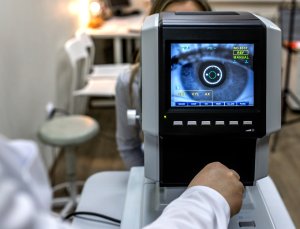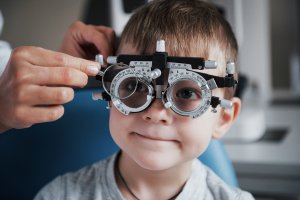Diabetes and Eyesight

Voted Best of Berks—
eight years in a row!
Diabetes and eyesight are very closely related. In fact, diabetes can have a significant impact on eyesight due to its effects on the blood vessels and nerves in the eye. The most common eye-related complication of diabetes is called diabetic retinopathy.
Diabetic retinopathy occurs when high blood sugar levels damage the blood vessels in the retina, the light-sensitive tissue at the back of the eye. In the early stages, diabetic retinopathy may not cause noticeable symptoms, but as it progresses, it can lead to vision loss or even blindness. Regular eye exams are essential for early detection and intervention. This retinopathy can be a potentially serious eye complication of diabetes, and there are two main types:
- Non-proliferative diabetic retinopathy (NPDR) may not cause noticeable symptoms in the early stages. In the beginning, small blood vessels in the retina may leak fluid or blood, leading to swelling and the formation of deposits called “exudates.” As the condition progresses, the blood vessels may become blocked, depriving the retina of adequate blood supply.
- Proliferative diabetic retinopathy (PDR): This is an advanced stage of the disease. New abnormal blood vessels start growing on the surface of the retina and the optic nerve. These new vessels are fragile and prone to bleeding, and if left untreated, can lead to severe vision loss or blindness.
In addition to retinopathy, other eye conditions are also associated with diabetes. Diabetic macular edema (DME) is a specific complication of diabetic retinopathy. Fluid accumulates in the macula, the central part of the retina responsible for sharp, detailed vision. This swelling can lead to blurred or distorted central vision.
People with diabetes have a higher risk of developing cataracts, a clouding of the eye’s natural lens, which can lead to decreased vision. Diabetes-related cataracts may develop at a younger age and progress faster than those in individuals without diabetes. Diabetes also increases the risk of glaucoma, a condition characterized by increased pressure within the eye, leading to optic nerve damage and potential vision loss. High blood sugar levels can cause temporary changes in the shape of the eye lens, leading to blurred vision; once blood sugar levels are under control, this usually improves. Changes in refractive error can also be caused by fluctuations in blood sugar levels, which can cause temporary changes in the shape of the lens in the eye. This can result in blurred vision that improves once blood sugar levels stabilize.
An Ounce of Prevention
You’ve likely heard the saying about an ounce of prevention, and preventative measures for diabetes can go a long way in preserving your precious eyesight. Early detection and treatment are crucial for preventing severe vision loss. Regular eye exams are extremely important. Our Eye Consultants of Pennsylvania team recommends that people with diabetes have a comprehensive eye examination at least once a year, even if you don’t notice any vision problems.
Keeping blood sugar levels under control and within the target range can help reduce the risk of diabetic retinopathy and other eye complications. Blood pressure and cholesterol management are also very important. High blood pressure and cholesterol levels can contribute to eye complications in diabetes, so it’s essential to manage these factors. Adopting a healthy lifestyle is vitally important. Eat a balanced diet, get regular exercise, and avoid smoking. All of these measures can help manage diabetes and its associated complications.
The Eye Consultants Experience
Every person’s experience with diabetes and its impact on eyesight can differ, so it’s crucial to work closely with healthcare professionals and eye specialists to manage the condition effectively.
If you have poorly controlled diabetes or have had diabetes for an extended period, your eyesight may be more affected. Diabetes and eyesight are closely related, so managing your diabetes has a direct impact on your eyesight. Come see our eye care team at Eye Consultants of Pennsylvania at one of our convenient locations. See you soon.
Find a Doctor
Physician information including education, training, practice location and more.
Schedule an Appointment
Call 800-762-7132 or make an appointment online.





